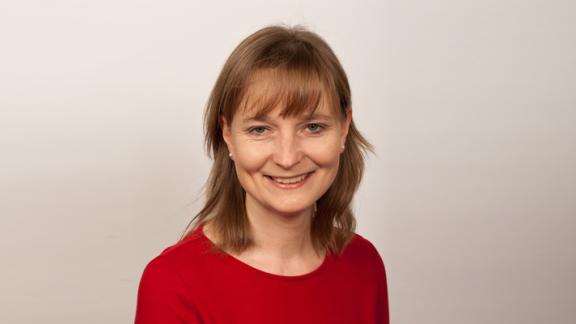Ten high-impact actions for ICS success

“Saying you are an ICS is only the start”, says Rebecca Larder, ICS programme director of Nottingham and Nottinghamshire ICS, as she shares the game changers for Nottingham and Nottinghamshire in their journey through system transformation and integration.
Imagine it’s 1 April 2026; five years after all sustainability and transformation partnerships (STPs) were proclaimed as integrated care systems (ICSs). How many will have achieved tangible improvements in population outcomes, quality of care and per capita costs, across the breadth and depth of services provided, for the populations served?
Within the Nottingham and Nottinghamshire ICS, a first wave ICS accelerator, we have learnt that saying you are an ICS is only the start and doesn’t necessarily equate to actually being a high-performing integrated care system, achieving significant benefits for your local population, akin to the success achieved by a small number of internationally renowned systems such as Montefiore in New York and Canterbury in New Zealand.
In addition, we’ve learnt that there are no surprises in what it takes to bring about a high performing ICS, rather the lessons have been well documented over many years. We’ve also learnt that these lessons have not always been prominent, to date, in the long history of system transformation and integrated care development in England.
At this juncture, with focus on ICS policy and development, there is opportunity to change this. And it falls to all leaders involved in, and having responsibility for, ICS success to play their part. To this end, we offer our learning with best intent in the form of ten high-impact actions for ICS success. In so doing, it is important to clarify that we have not cracked all this, rather that our system development and delivery still remains a work in progress.
For me, the high-impact actions centre on an element of real magic, two game changers and the rest relate to best practice in system transformation and integration and sheer hard work!
The magic
While it’s not rocket science, the magic lies in truly creating common purpose. We’ve found, through our response to COVID-19, that with real common purpose anything is possible. We believe the trick for ICSs going forward will be to build on recent achievements creating common purpose with and for local populations at a scale beyond and above a specific population group, service or locality. It will also be in creating common purpose that captures the ‘hearts and minds’ of everyone involved in health and care who instinctively and emotionally want to support population health improvement and the provision of high-quality care. COVID-19 meant we had an urgent and critically important purpose thrust upon us – which we rose to collectively, as did all other parts of the health and care system in England. What is the common purpose that you can identify for your system which generates the same level of single-minded focus and effort?
The game changers
- Data, evidence and measurement. The power of detailed analysis of the improvement opportunity from integrated care cannot be underestimated. Neither can population health data and system-wide insights into service utilisation, preventable activity, cost and unwarranted variation especially in the hands of clinical and operational leaders and their teams. We’ve invested in analytical expertise and IT infrastructure in Nottingham and Nottinghamshire to enable this, which is really paying off, and would recommend others do too.
- During COVID-19, Incident Coordination Centres have enabled system oversight, coordination, resource allocation (including through ‘mutual aid’ endeavours), adherence to system-wide operating procedures and the escalation of risks and issues. This has been a game changer in Nottingham and Nottinghamshire. Interestingly, our coordination centre is in keeping with local thinking on the importance of having a system integration function that supports patient flow and operational management in an impartial, fair and transparent manner. When the NHS and social care are really able to recover and reset from COVID-19, the continuation and evolvement of such a function could well be the key to unlocking high-performing systems’ management going forward.
Best practice in system transformation and integration, as already stated, summarises the rest of the high-impact actions:
- assess readiness
- tell the story
- embed and sustain the transformation endeavour
- adapt the lessons
- invest in capacity and capability
- focus on the physiology of change and tackle the barriers.
There are no short cuts and ICS development relies on many years of hard work, but the prize is improved population outcomes, better patient and citizen experience, enhanced staff satisfaction, lower per capita costs and reduced inequalities.
To quote one of my colleagues: “As stewards of the NHS and social care, we have been entrusted to take care of something precious and we have an obligation to leave it in a better condition than before.” To that end, we hope that our ten high impact actions for ICS success may be of help to others.
Rebecca Larder is programme director of Nottingham and Nottinghamshire ICS and visiting fellow at Nottingham Business School. Follow them on Twitter @NottsICS @NottmUniBschool



